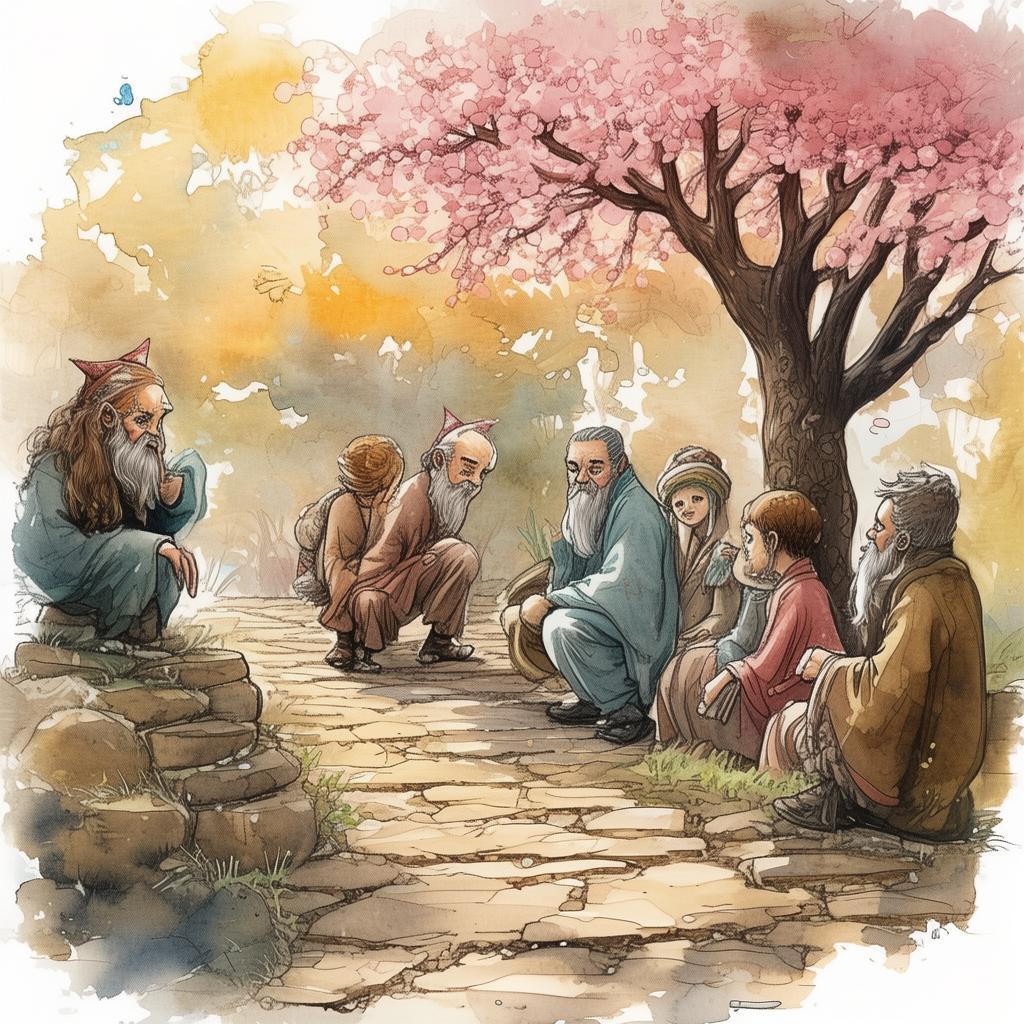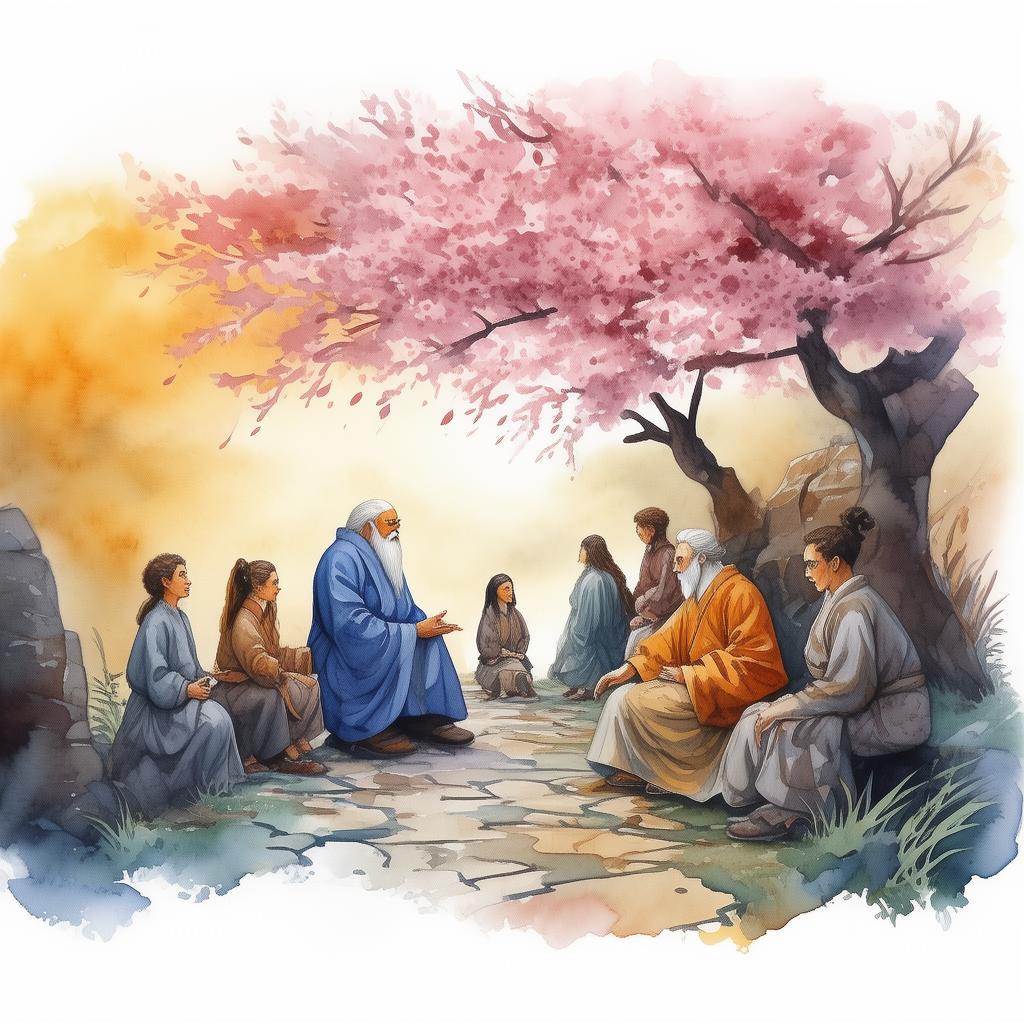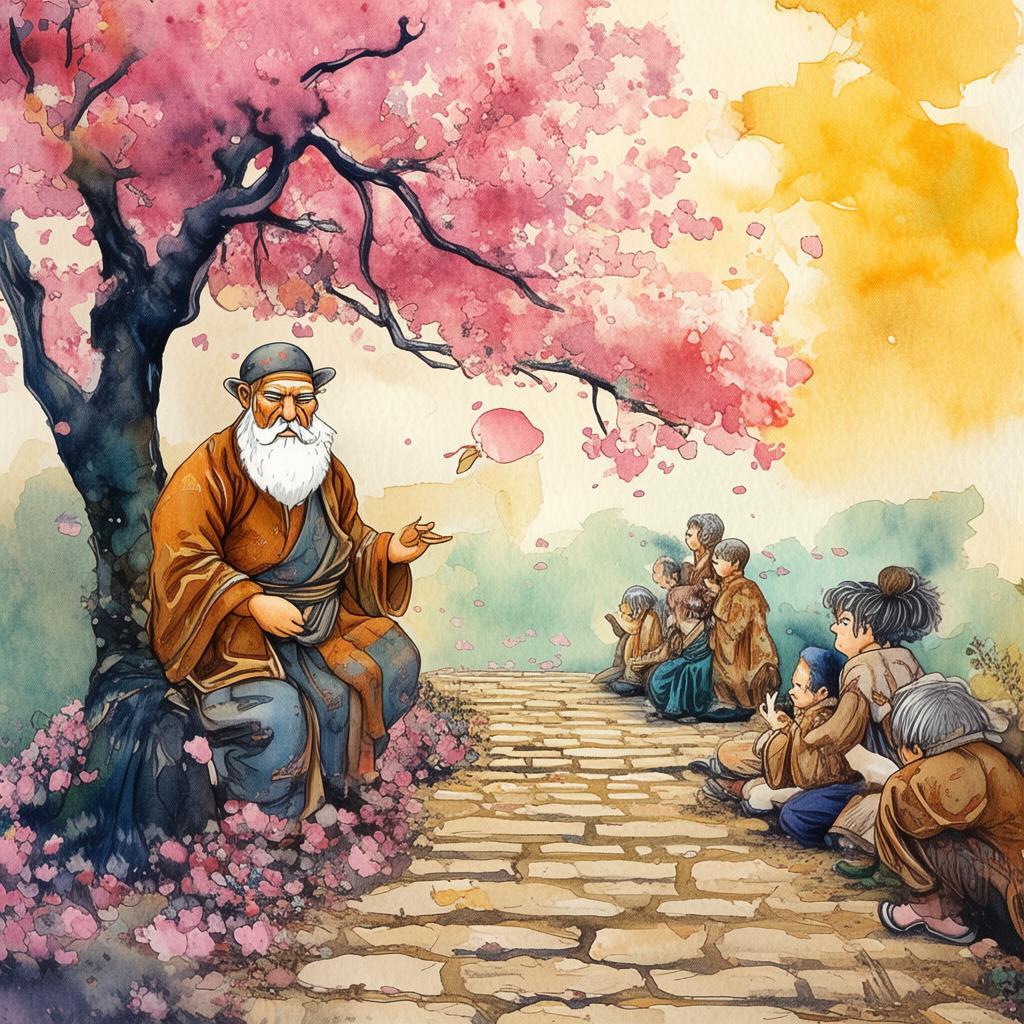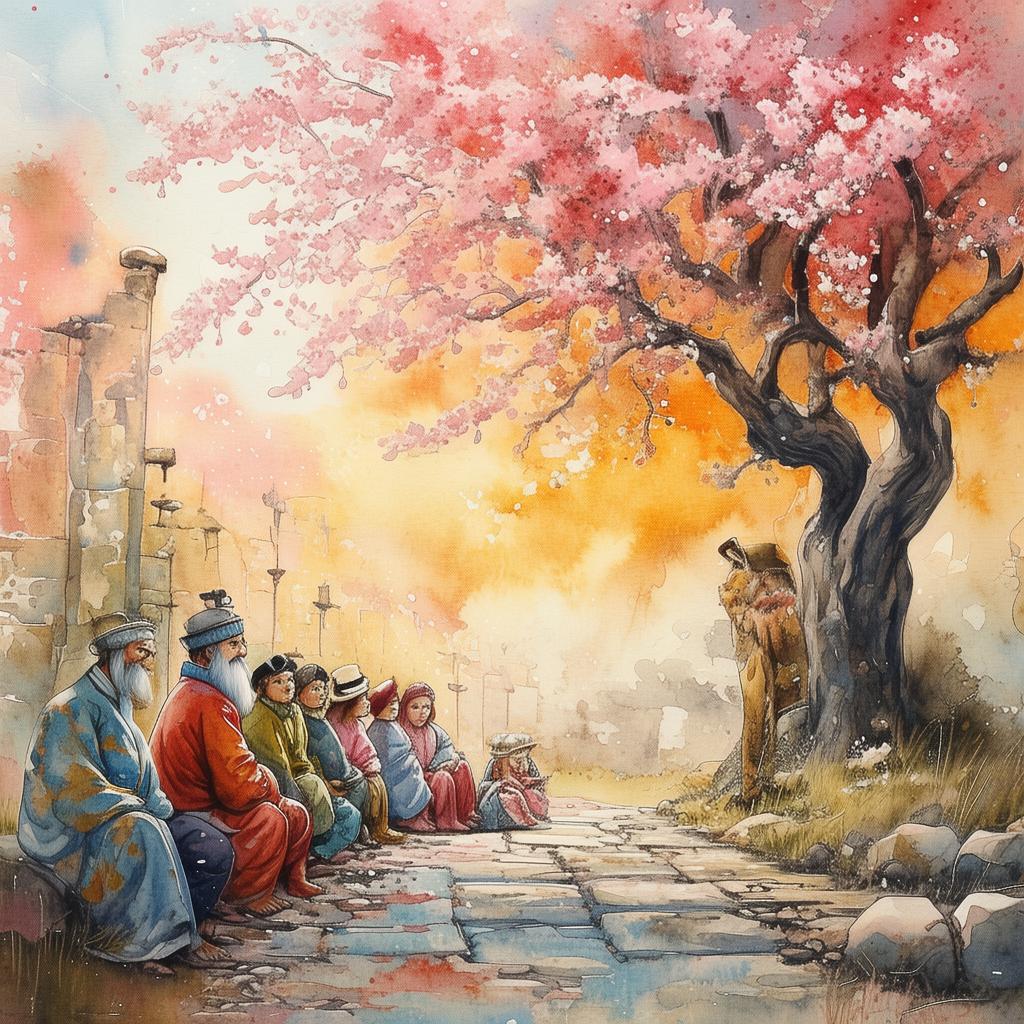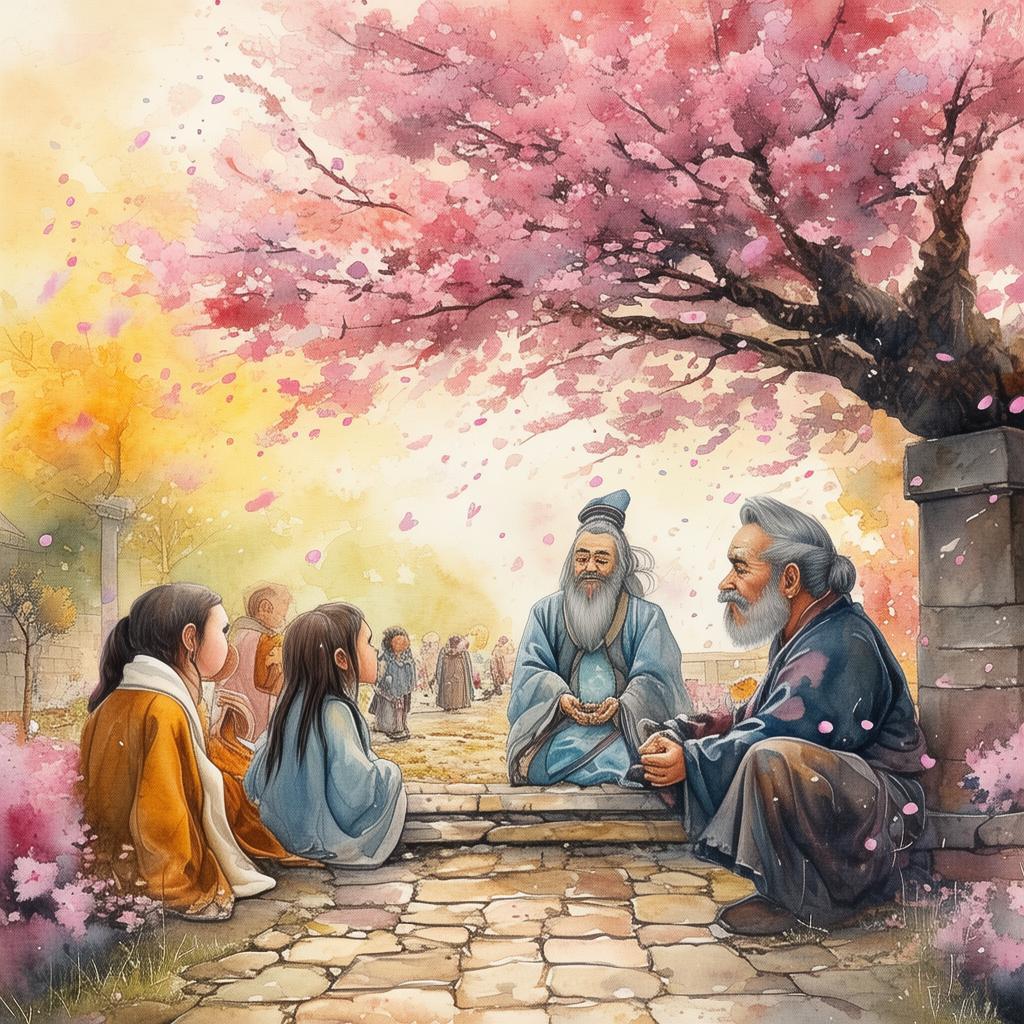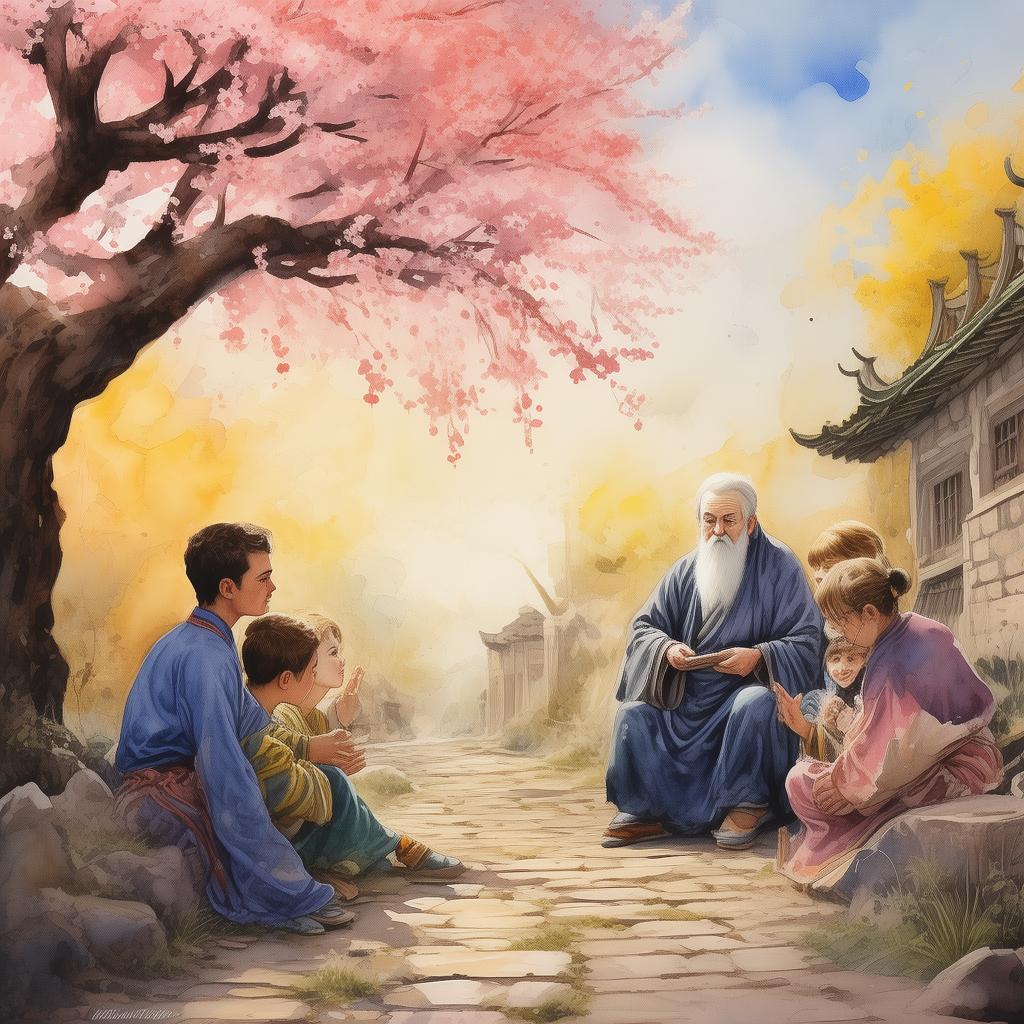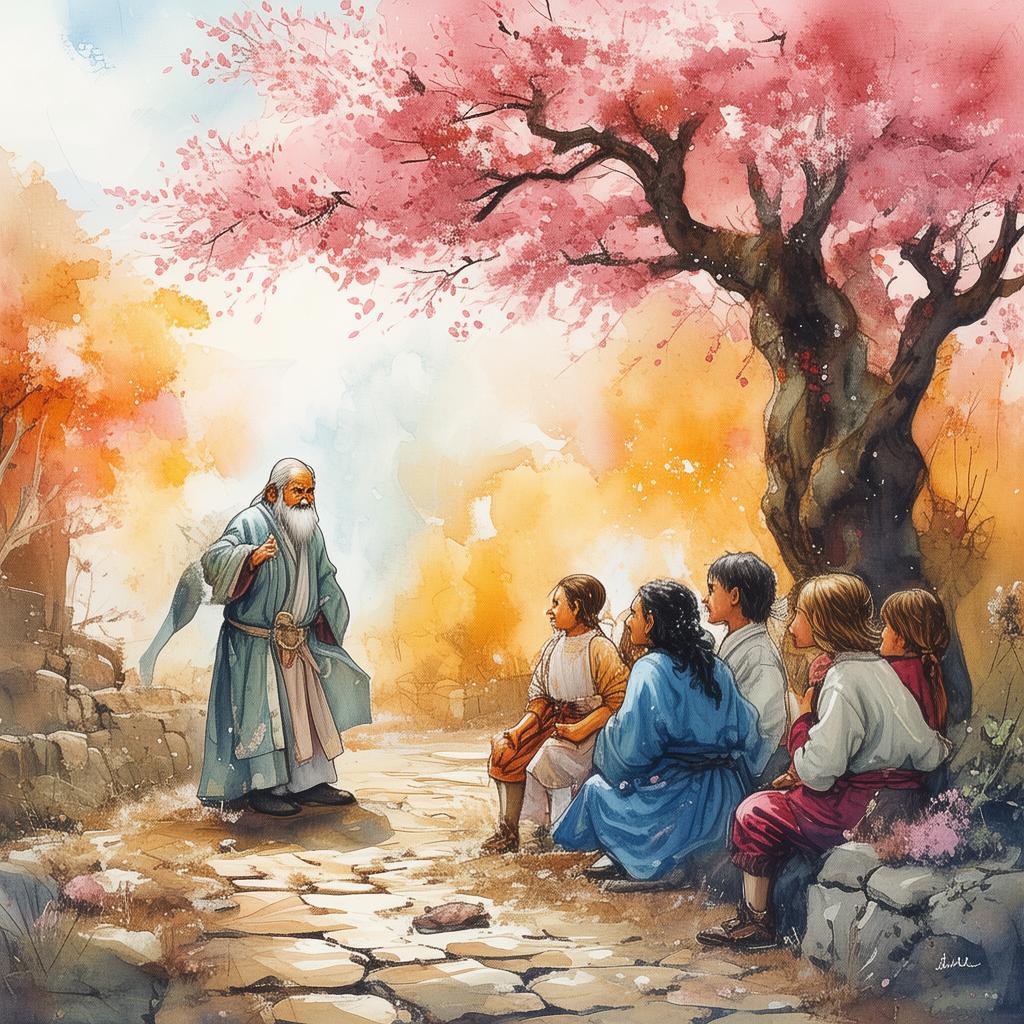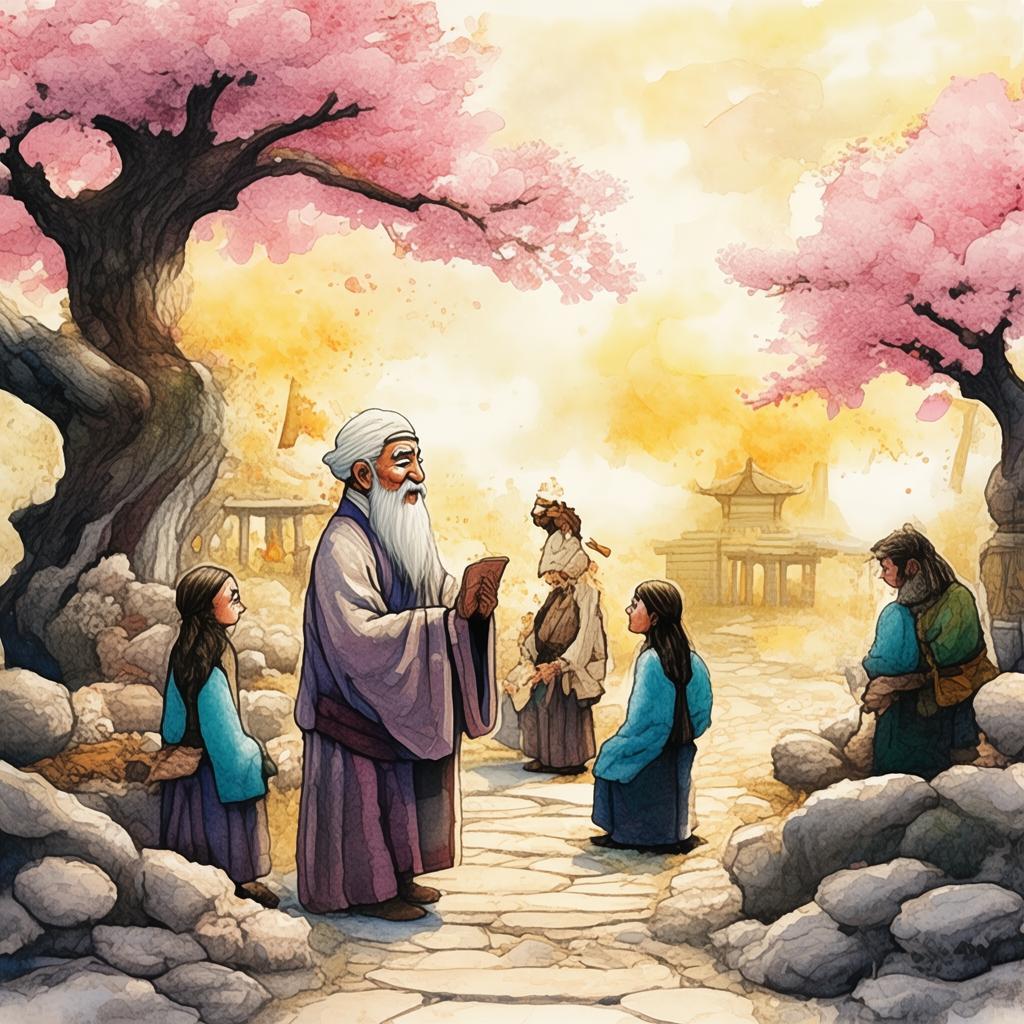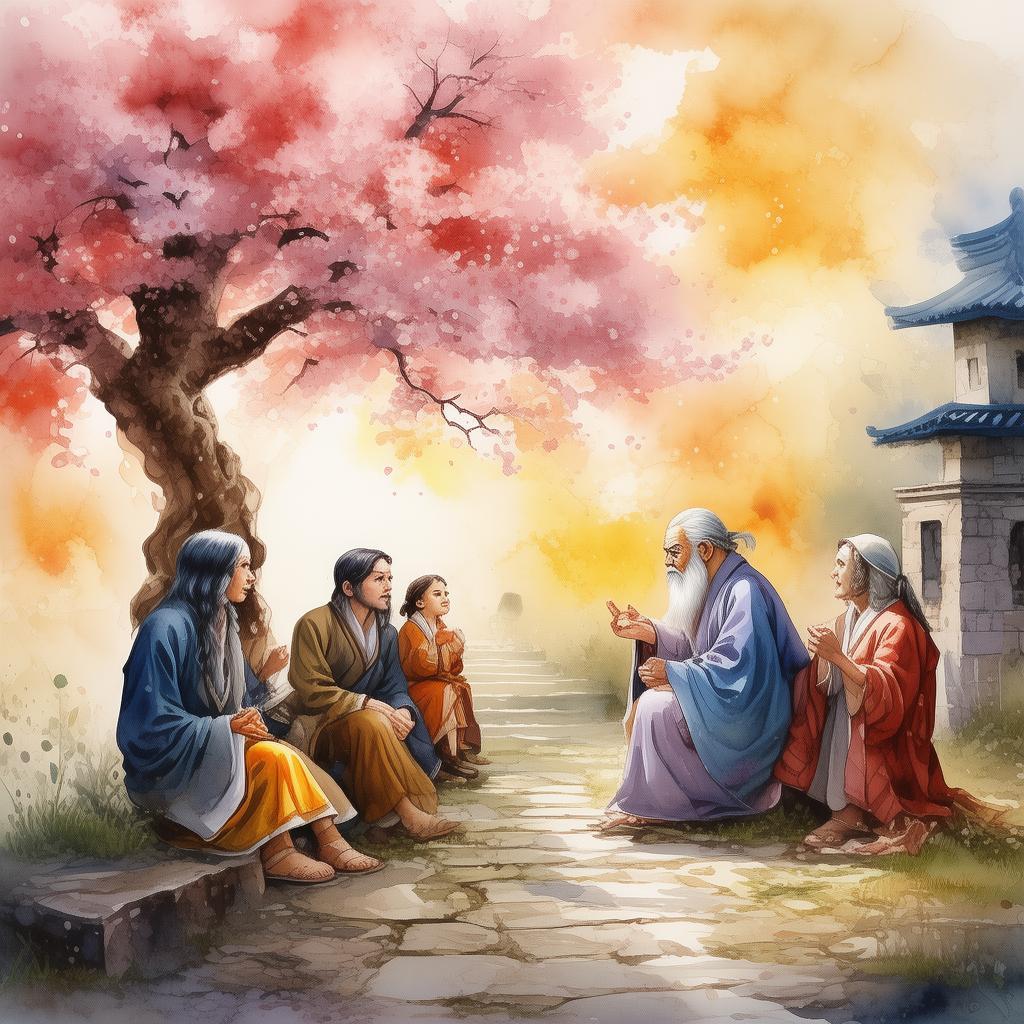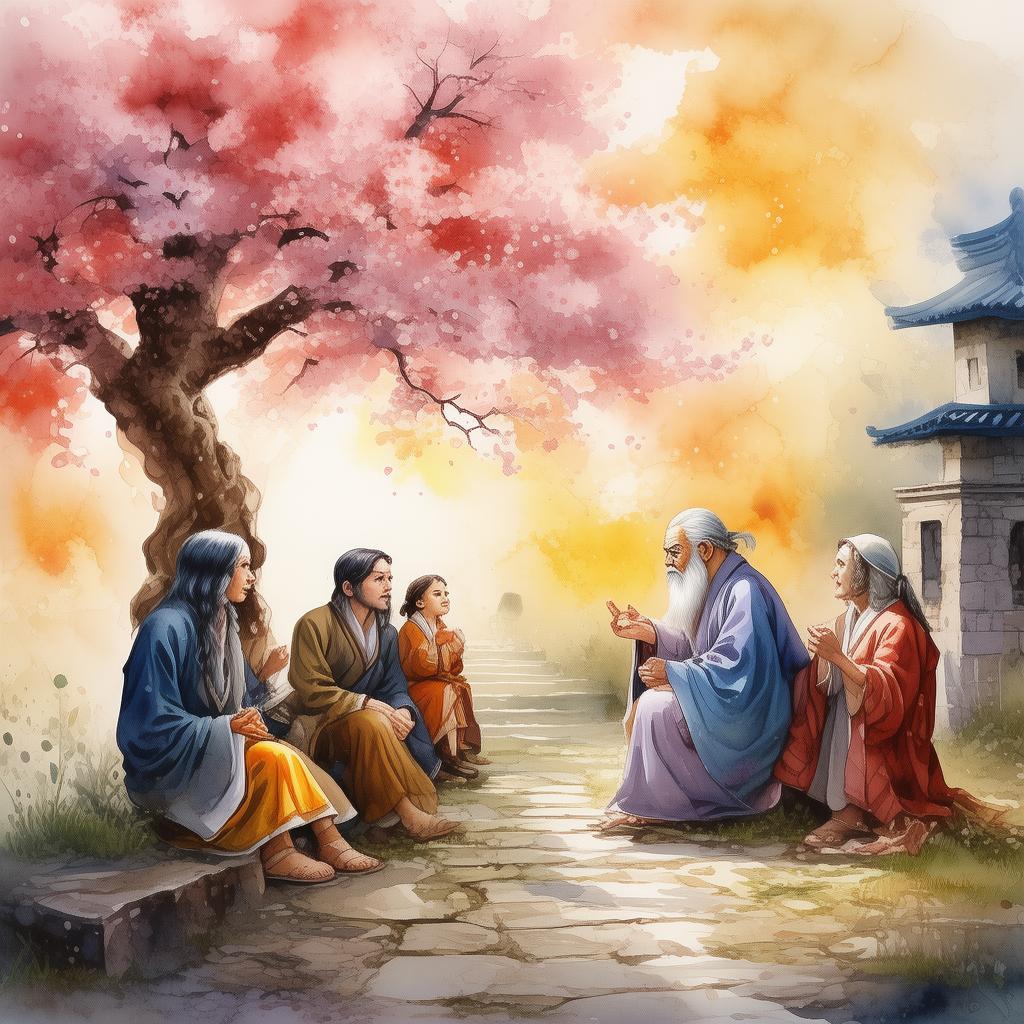The Quest for Enlightenment: The Paradox of the Alms and the Philosophical Dilemma
In the heart of ancient China, amidst the bustling streets of Chang'an, there lived a young philosopher named Zhiyu. Zhiyu was known for his sharp intellect and relentless pursuit of truth. He had dedicated his life to the study of the great philosophers, seeking to understand the nature of reality and the meaning of existence.
One day, as Zhiyu walked through the market, he stumbled upon a beggar sitting by the roadside. The beggar was dressed in rags, his face marked with the scars of a life of hardship. Zhiyu's heart went out to the beggar, and he decided to give him alms. As he handed over a coin, the beggar looked up at him with a strange, knowing smile.
"Thank you, kind sir," the beggar said. "But before you leave, consider this: the act of giving alms is itself a paradox. You give, and you receive. The giver becomes the receiver, and the receiver becomes the giver. In this cycle, who is truly the alms-giver?"
Zhiyu was taken aback by the beggar's words. He had never considered the paradox of giving alms. The concept of giving and receiving was as natural to him as breathing, but the beggar's words made him question everything he knew about the act of charity.
Determined to unravel the mystery, Zhiyu began a journey that would take him far from Chang'an. He traveled through the mountains, the deserts, and the forests, meeting various sages and philosophers along the way. Each one he met offered a different perspective on the nature of giving and receiving, but none seemed to satisfy Zhiyu's quest.
One evening, as Zhiyu sat by a tranquil lake, he realized that the beggar's words had planted a seed of doubt in his mind. He had been so focused on the act of giving that he had forgotten the essence of the act itself. He had failed to recognize the true meaning of alms.
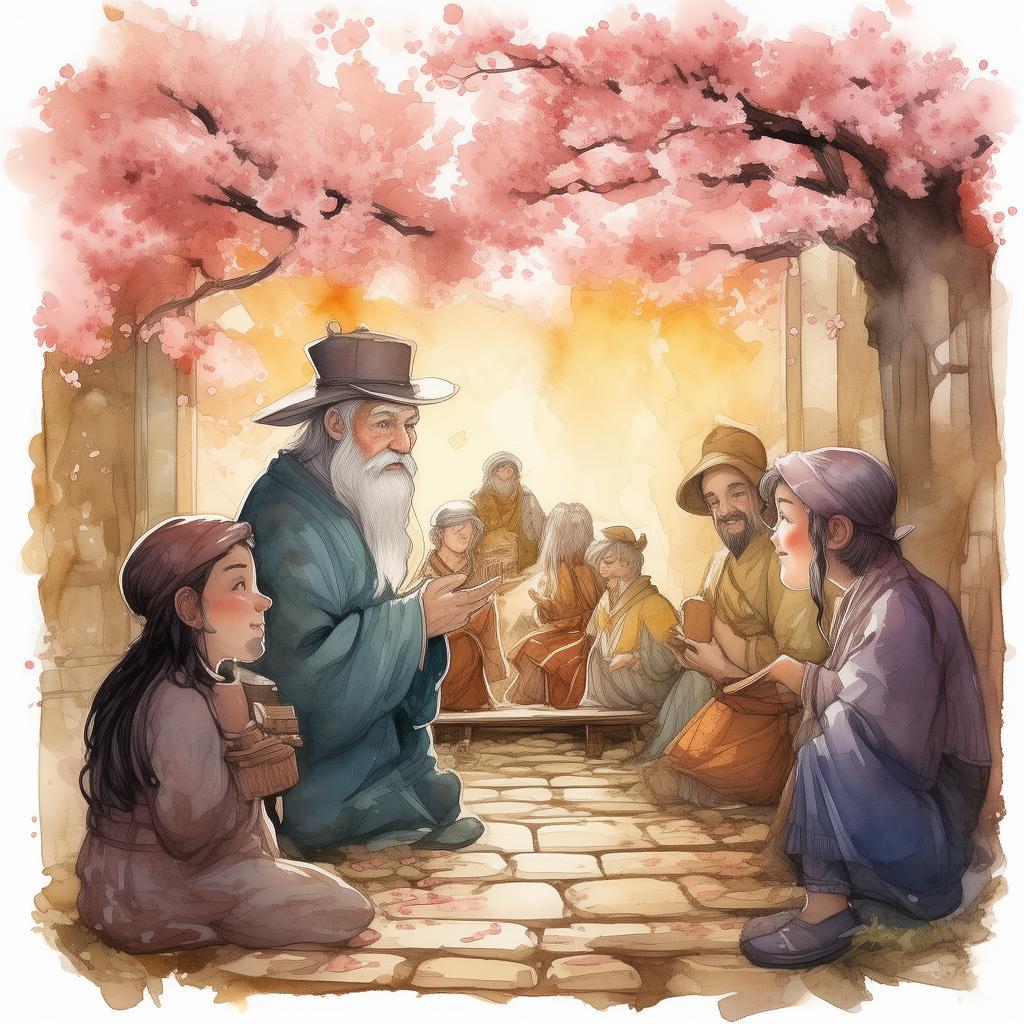
In that moment, Zhiyu had a revelation. He realized that the act of giving was not about the physical exchange of goods or money, but about the exchange of compassion, kindness, and empathy. It was a gift of the heart, not the hands. The beggar had been right; in giving alms, he had received the gift of wisdom.
With this newfound understanding, Zhiyu returned to Chang'an. He no longer saw the beggar as a mere beggar, but as a wise teacher who had guided him to a deeper understanding of life. He continued his studies, now with a newfound clarity, and he shared his insights with others.
Word of Zhiyu's enlightenment spread quickly, and soon he was revered as a great philosopher. His teachings on the paradox of giving and receiving, and the true essence of alms, became a cornerstone of his philosophy.
Zhiyu's story serves as a testament to the power of self-reflection and the pursuit of truth. It reminds us that the simplest acts can hold profound meanings, and that the quest for enlightenment is a journey of continuous discovery and self-discovery.
✨ Original Statement ✨
All articles published on this website (including but not limited to text, images, videos, and other content) are original or authorized for reposting and are protected by relevant laws. Without the explicit written permission of this website, no individual or organization may copy, modify, repost, or use the content for commercial purposes.
If you need to quote or cooperate, please contact this site for authorization. We reserve the right to pursue legal responsibility for any unauthorized use.
Hereby declared.
